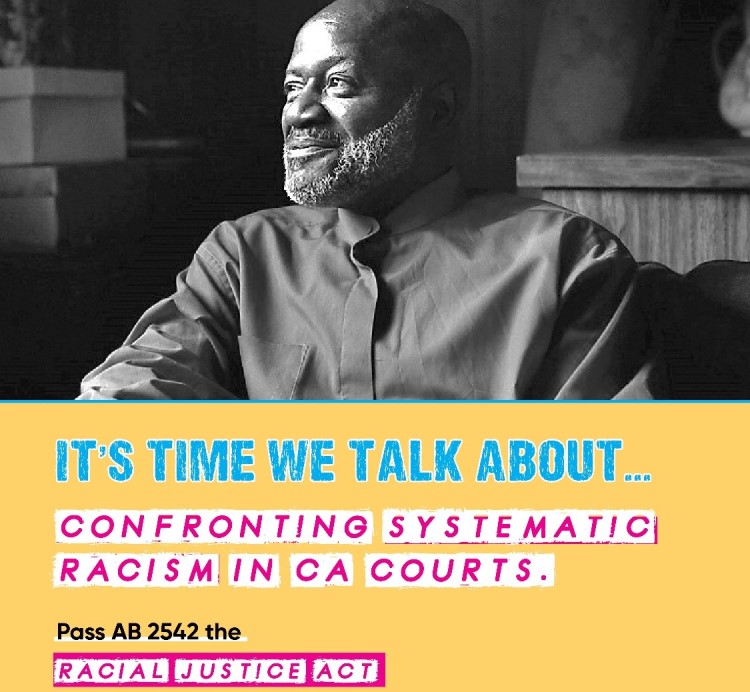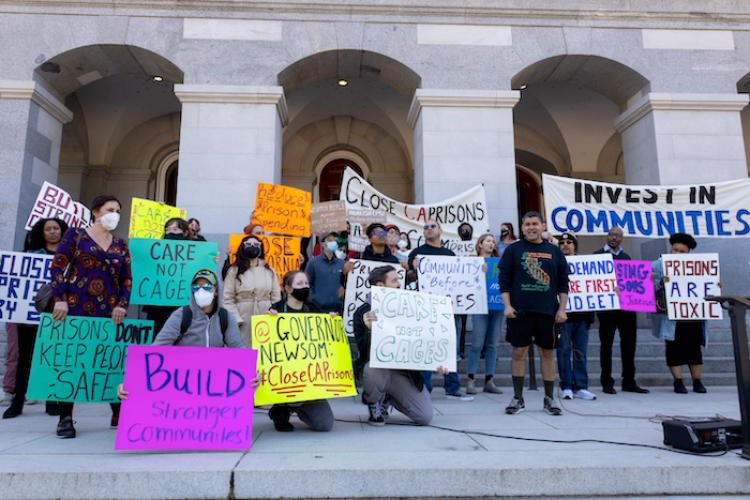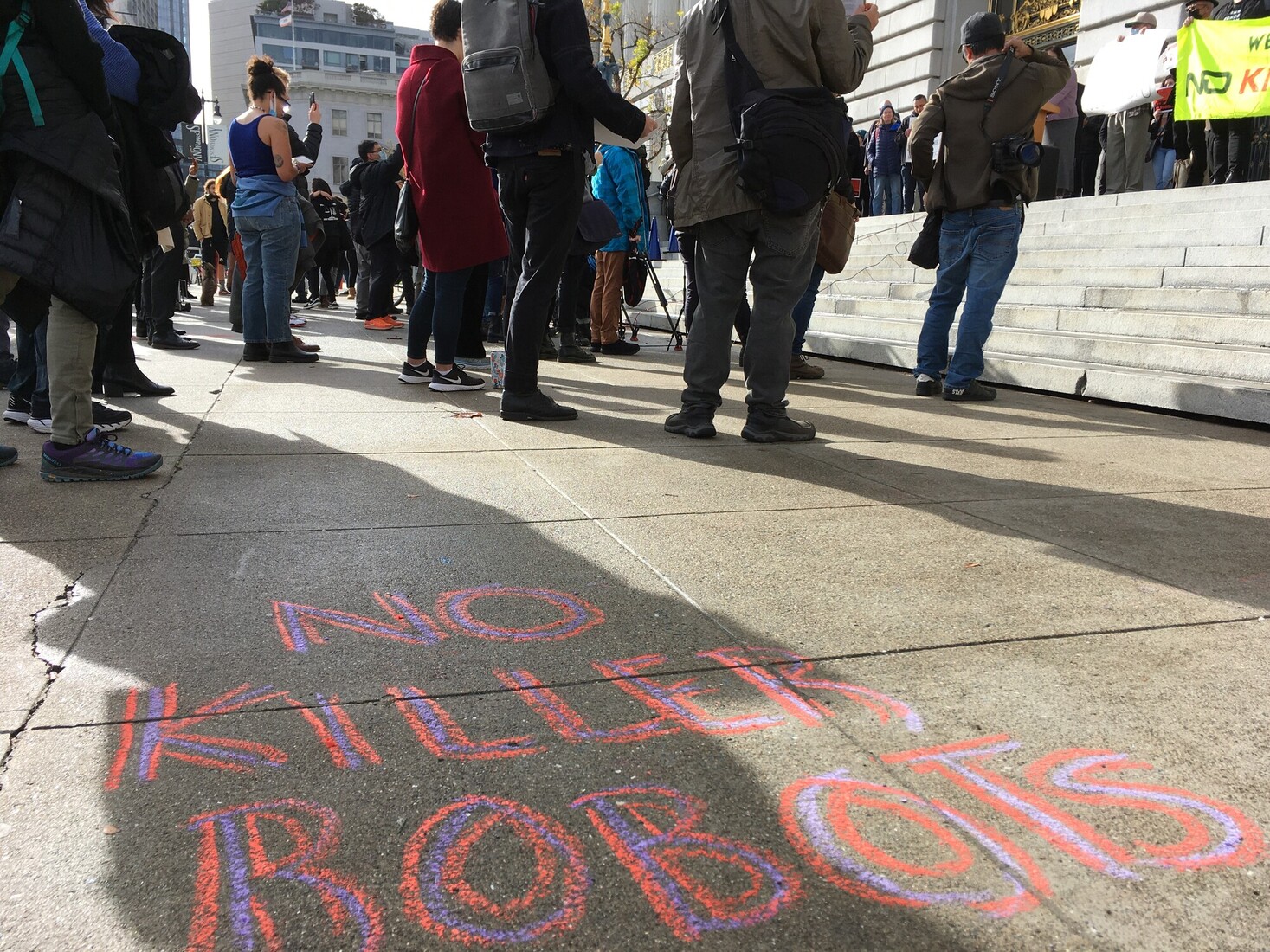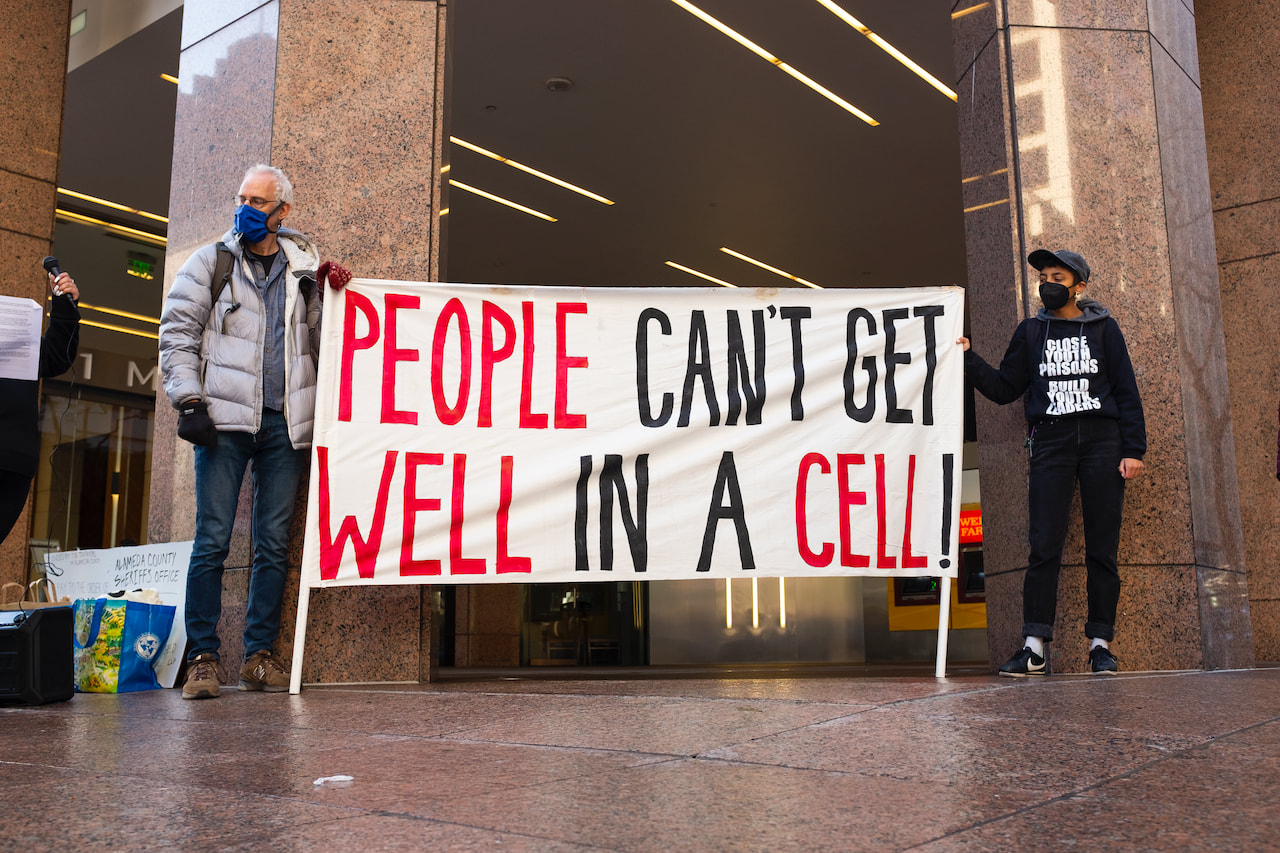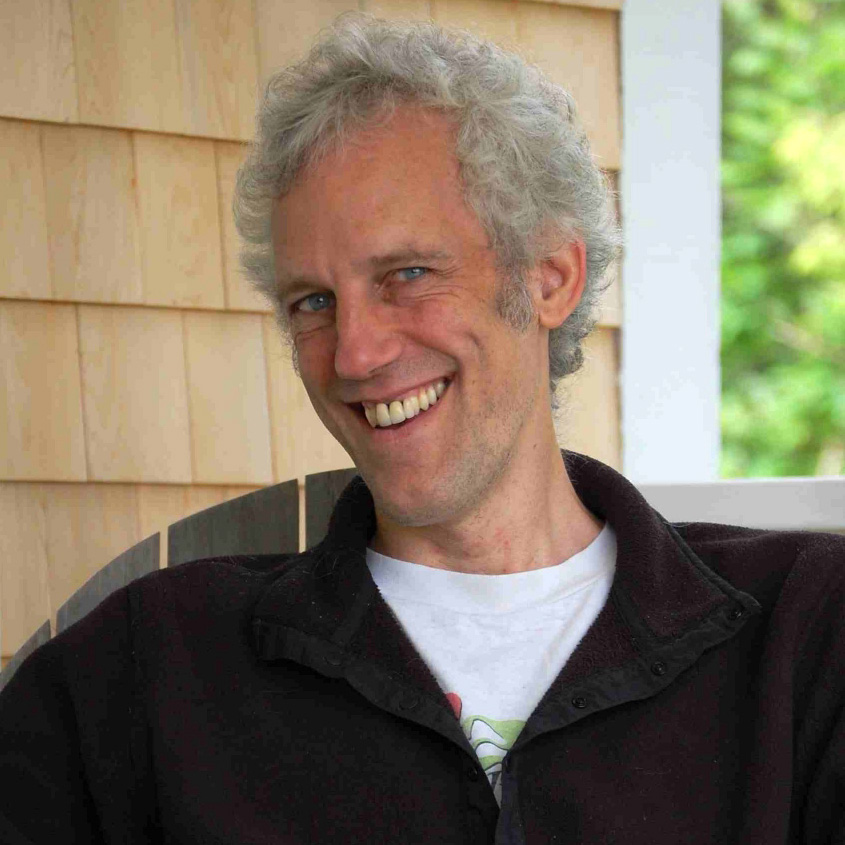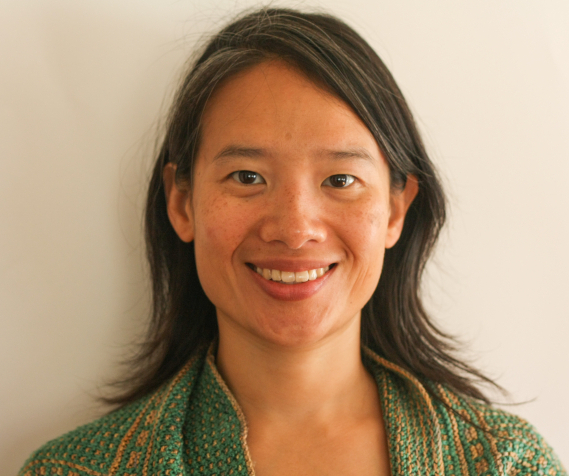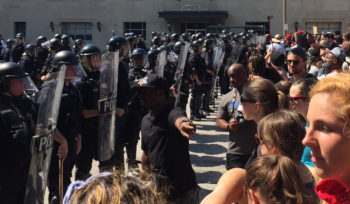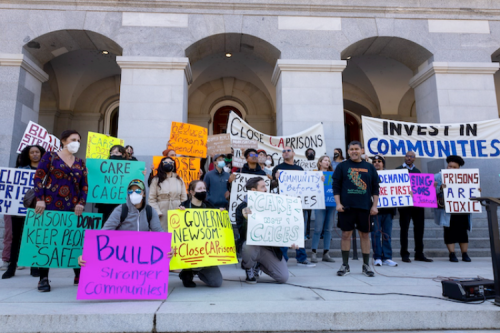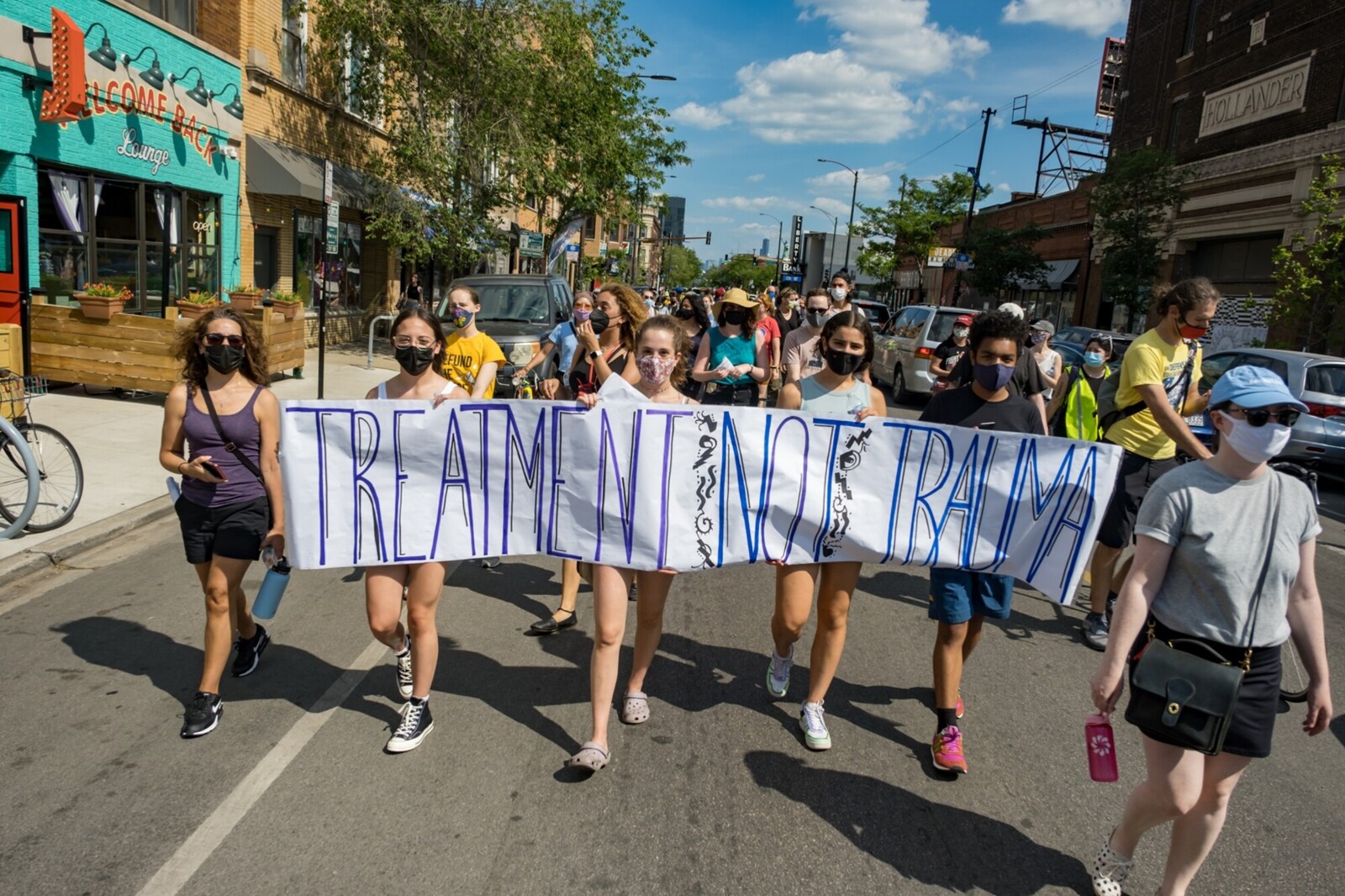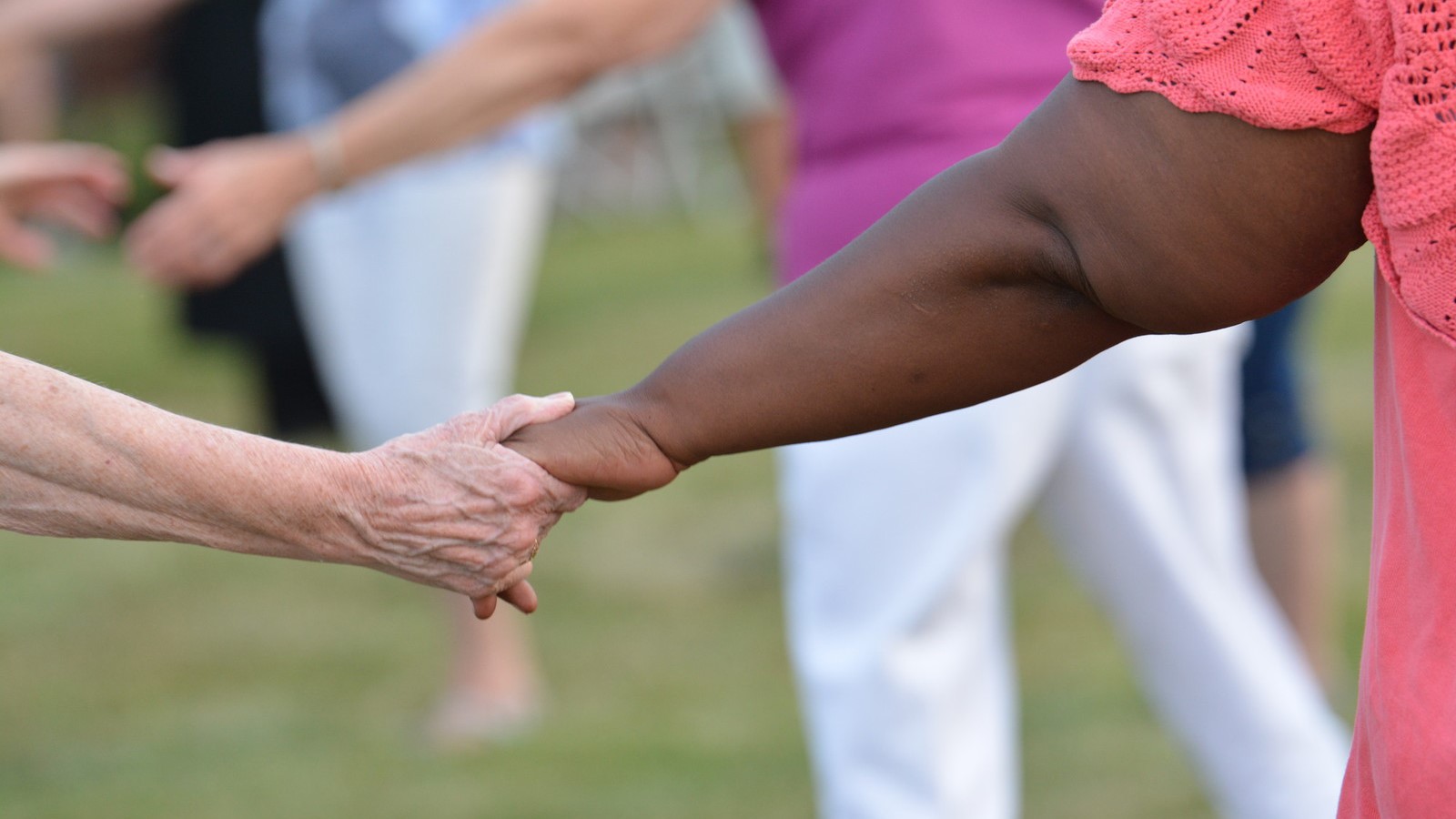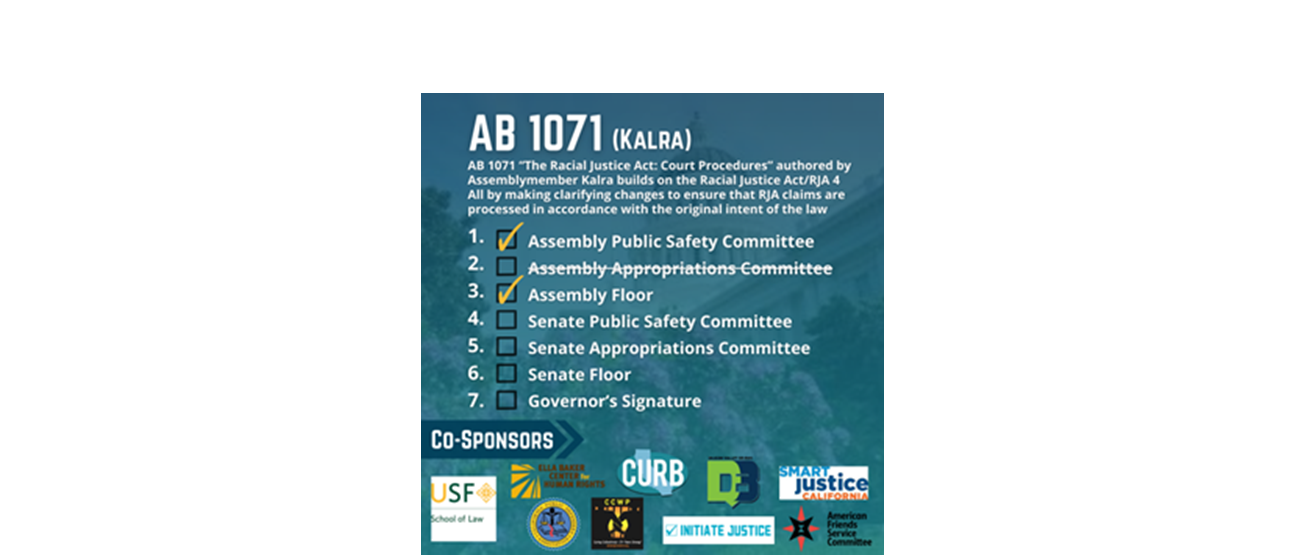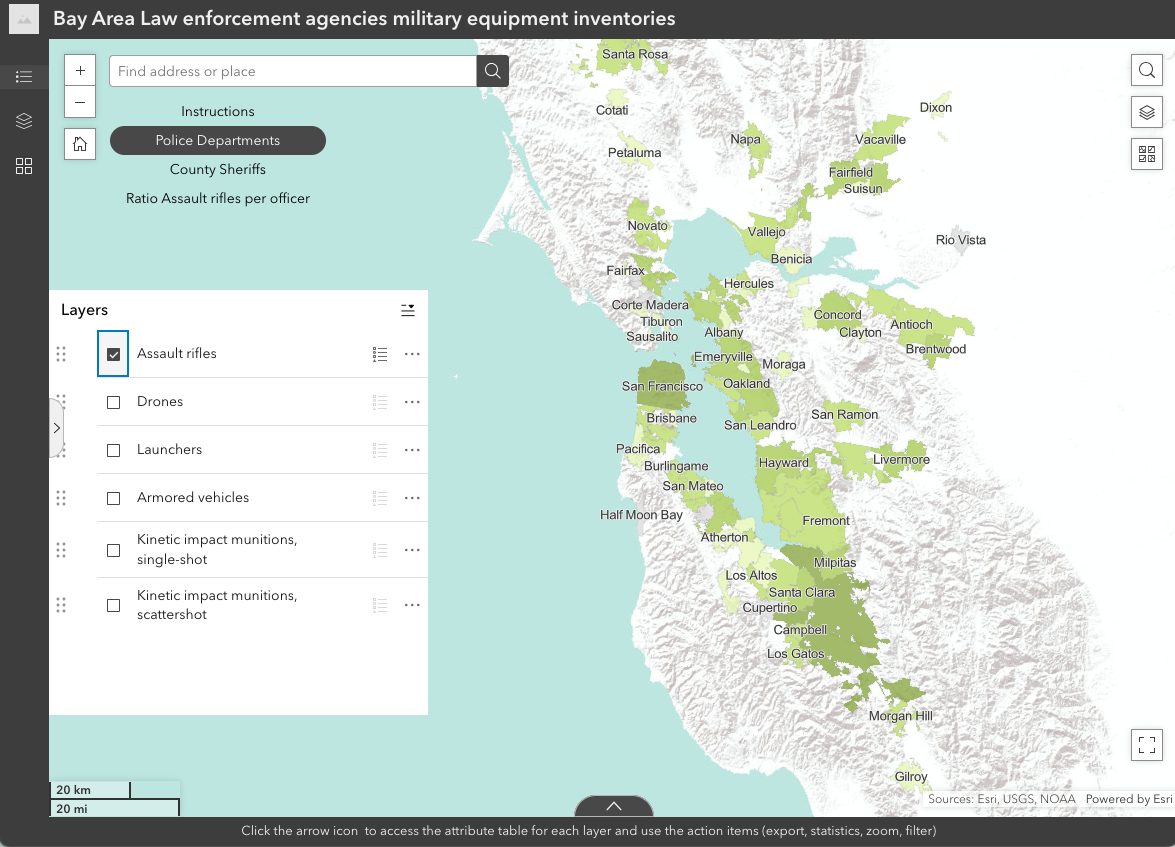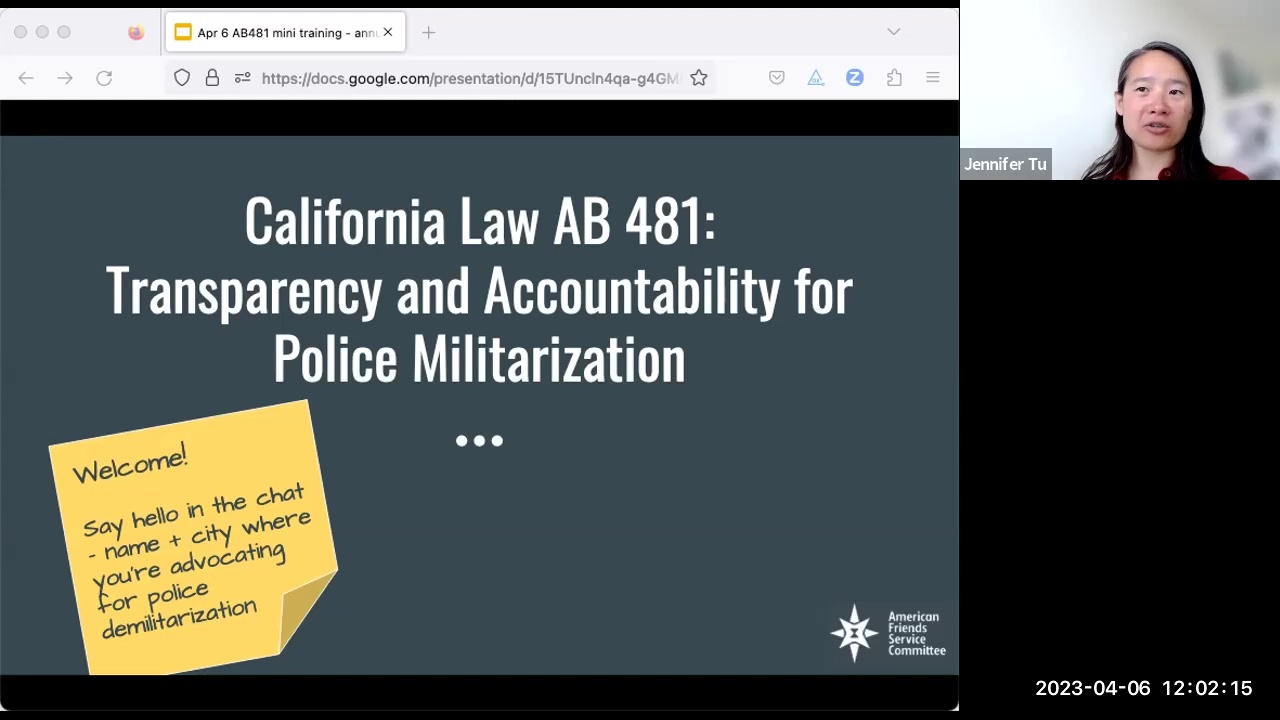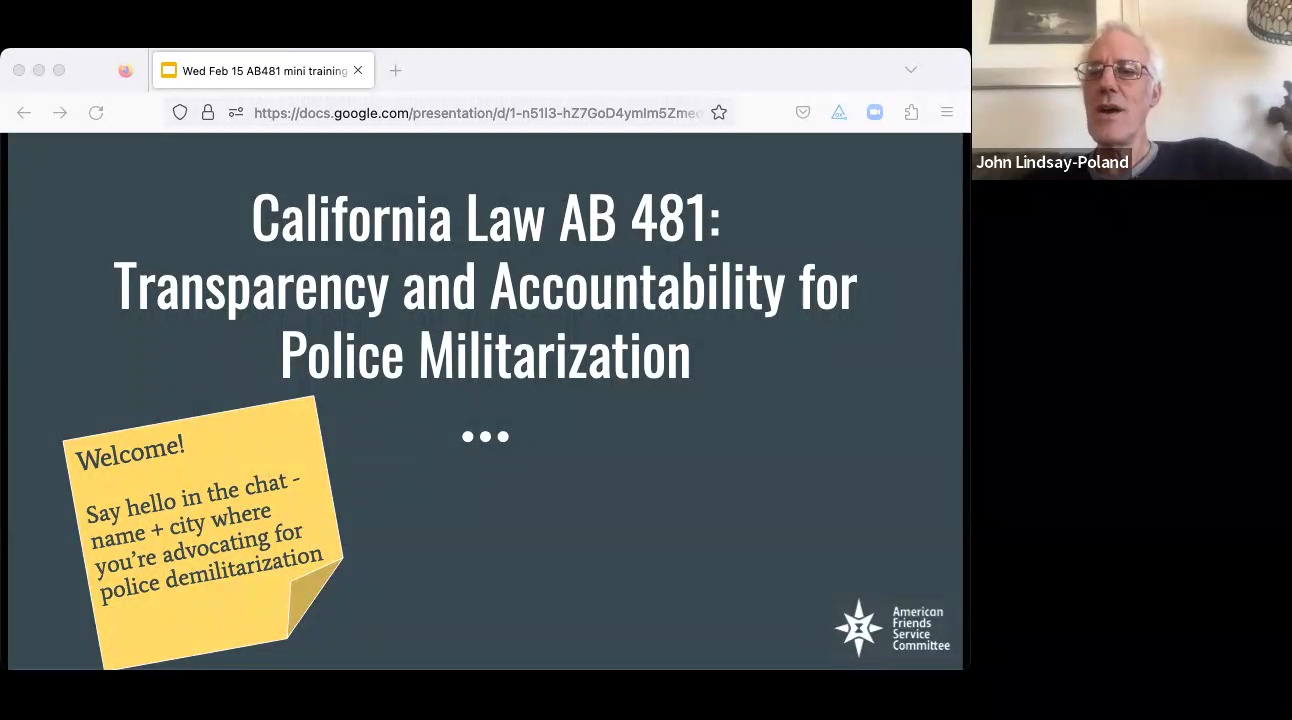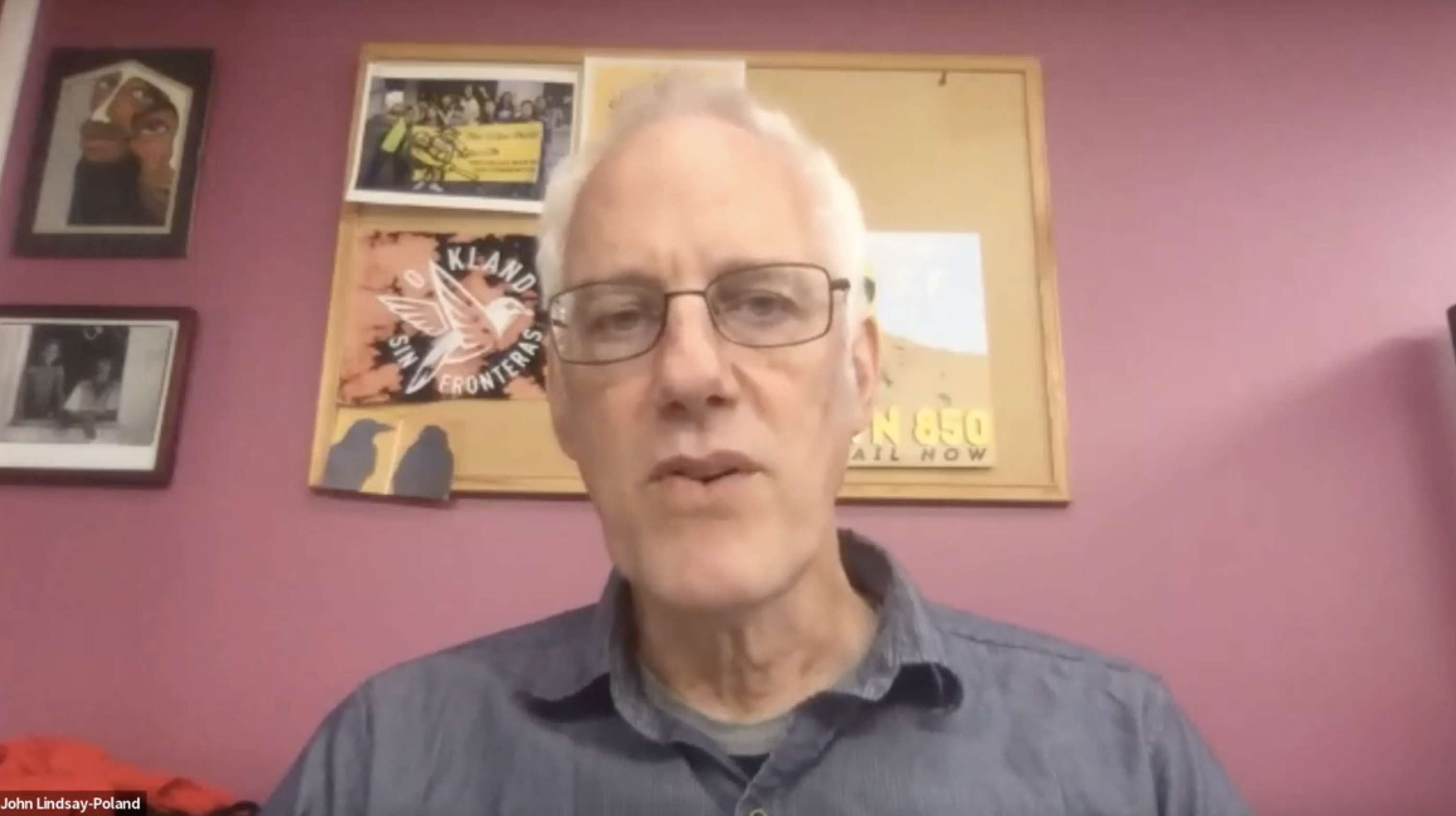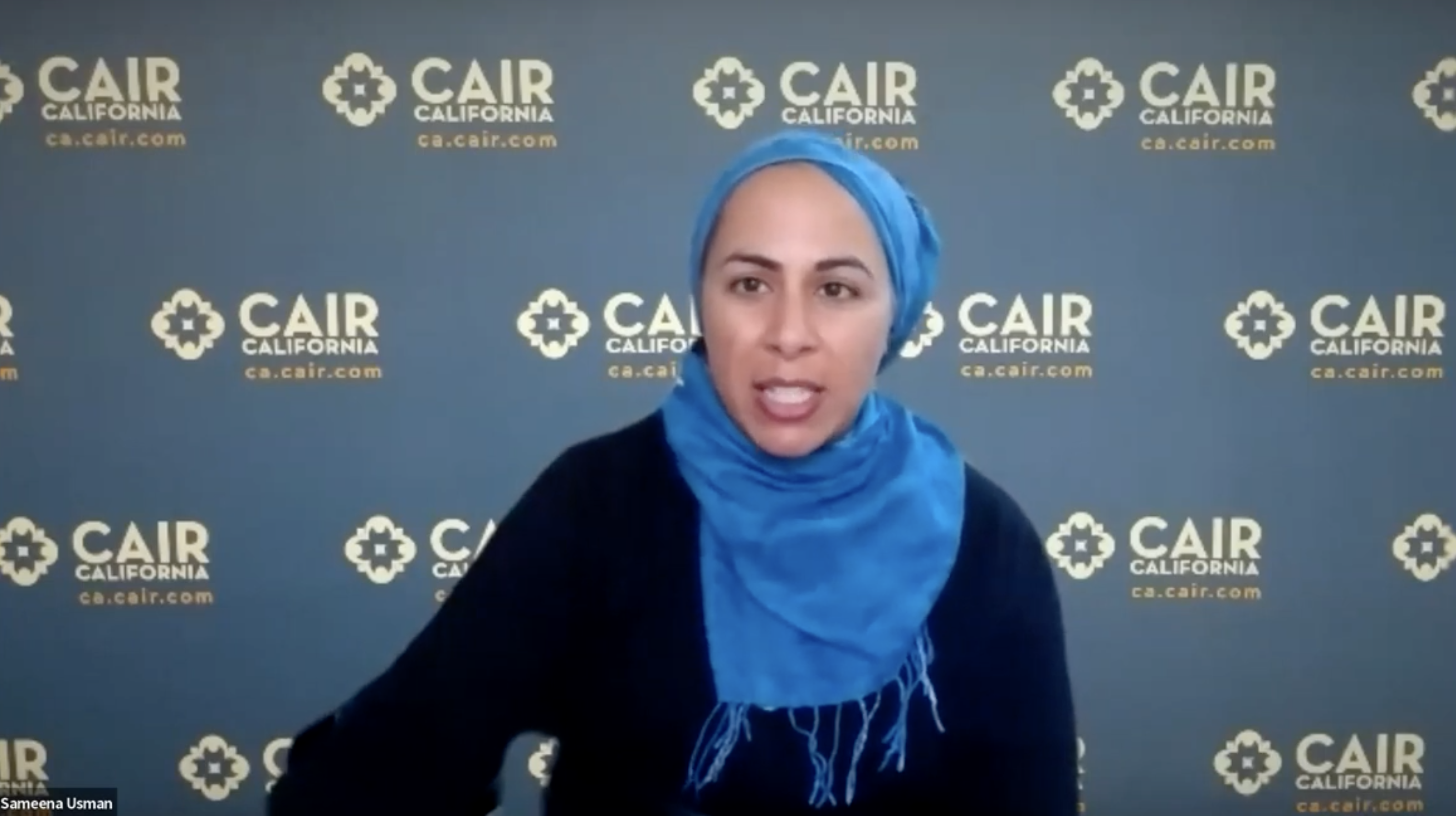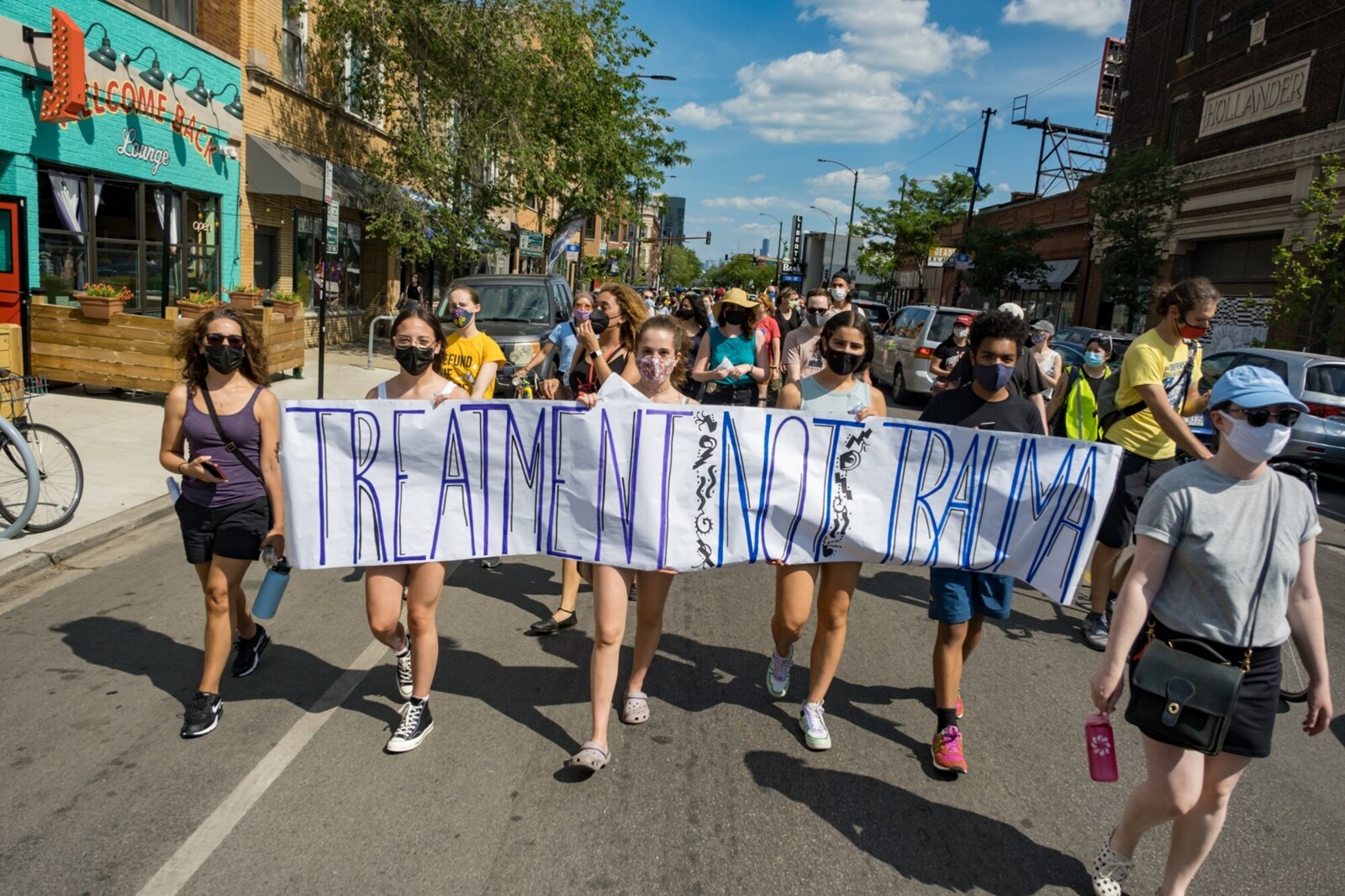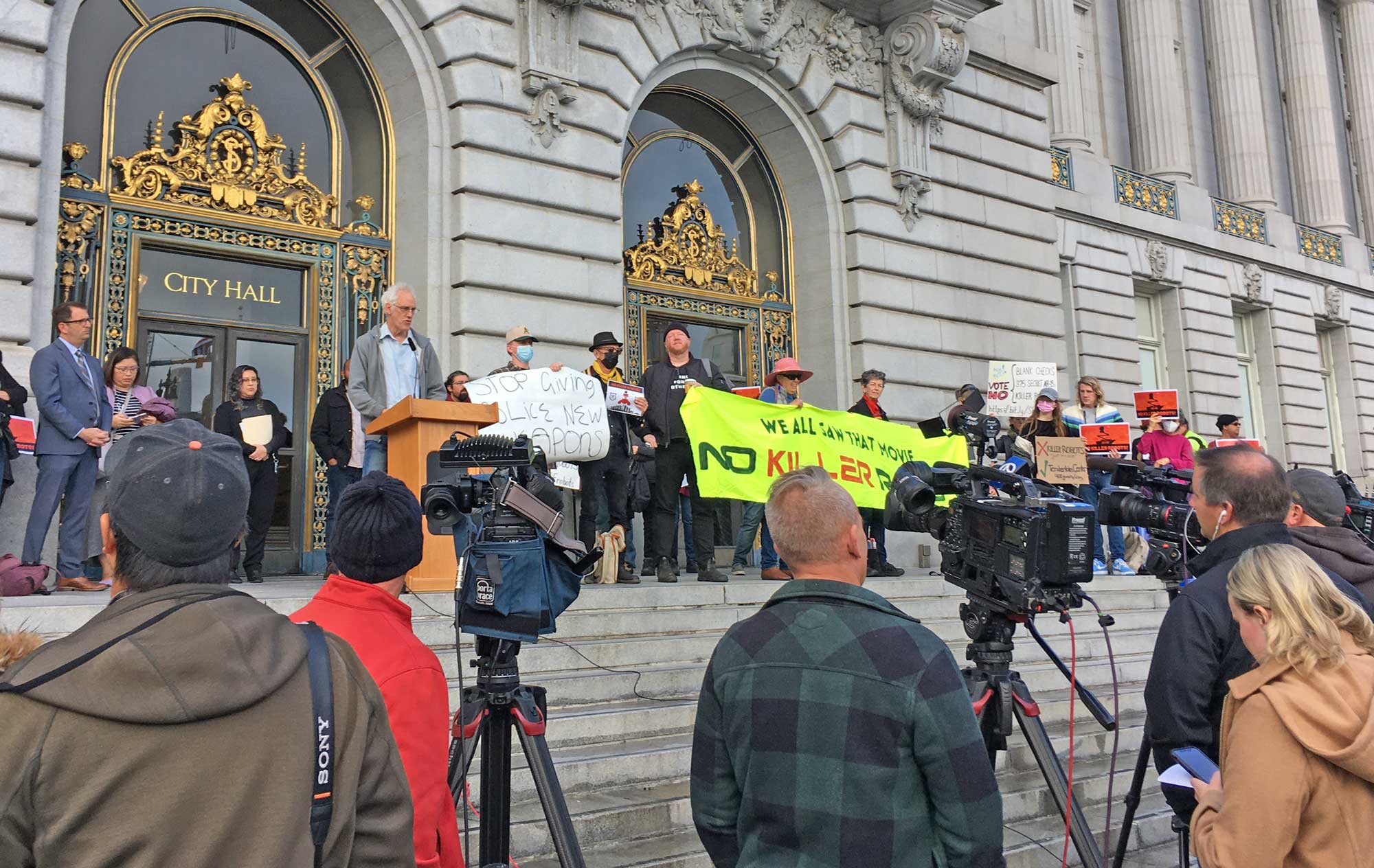
Photo: Jennifer Tu/AFSC
The California Healing Justice Program works to reduce reliance on incarceration and policing and replace them with restorative, healing practices. We concentrate on three areas: ending mass incarceration, demilitarizing police, and the promotion of healing alternatives.
In all that we do, we seek to amplify the voices of those most directly impacted by the carceral and police systems—low-income people, people with mental illness or substance use disorders, and all Black and Brown people.
Guided by the Quaker belief in the divine light of each person, AFSC works with people of all faiths and backgrounds to challenge unjust systems and promote lasting peace.
Ending Mass Incarceration
The work to end mass incarceration reduces the prison population by developing durable sentencing reforms, decriminalization, abolition of money bail, and limiting the currently unlimited authority of the carceral system to detain and control people’s bodies. A prison abolition organization since 1978, AFSC works in coalition to reduce state and county budgets for prisons and jails and ultimately close them all. AFSC helps influence and monitor implementation of the U.S. Supreme Court decision requiring California to reduce its prison population; proposes sentencing policy changes that will reduce the number of people in prison; and promotes evidence-based programming that reduces recidivism.
Demilitarizing Police
The core of our police demilitarization work is researching, educating and challenging militarization. Police enforcement is the entry point for people coming into the criminal justice system. The increased militarization of policing — through training for combat, weaponized equipment, and policies that justify the use of lethal force — locks law enforcement into practices that increase harm.
Alternatives to Prisons and Policing
While we work to reduce the prison population and limit police authority and militarization, we also promote healing and restorative practices as alternatives to violence and punishment. Through education and relationship building, we work so that a culture of healing is seen as a viable alternative to the current punishment/violence-based systems. We offer webinars, develop curricula, and advocate for community-based programs.
Take Action
Program News
AB 481 Videos
Restorative Justice
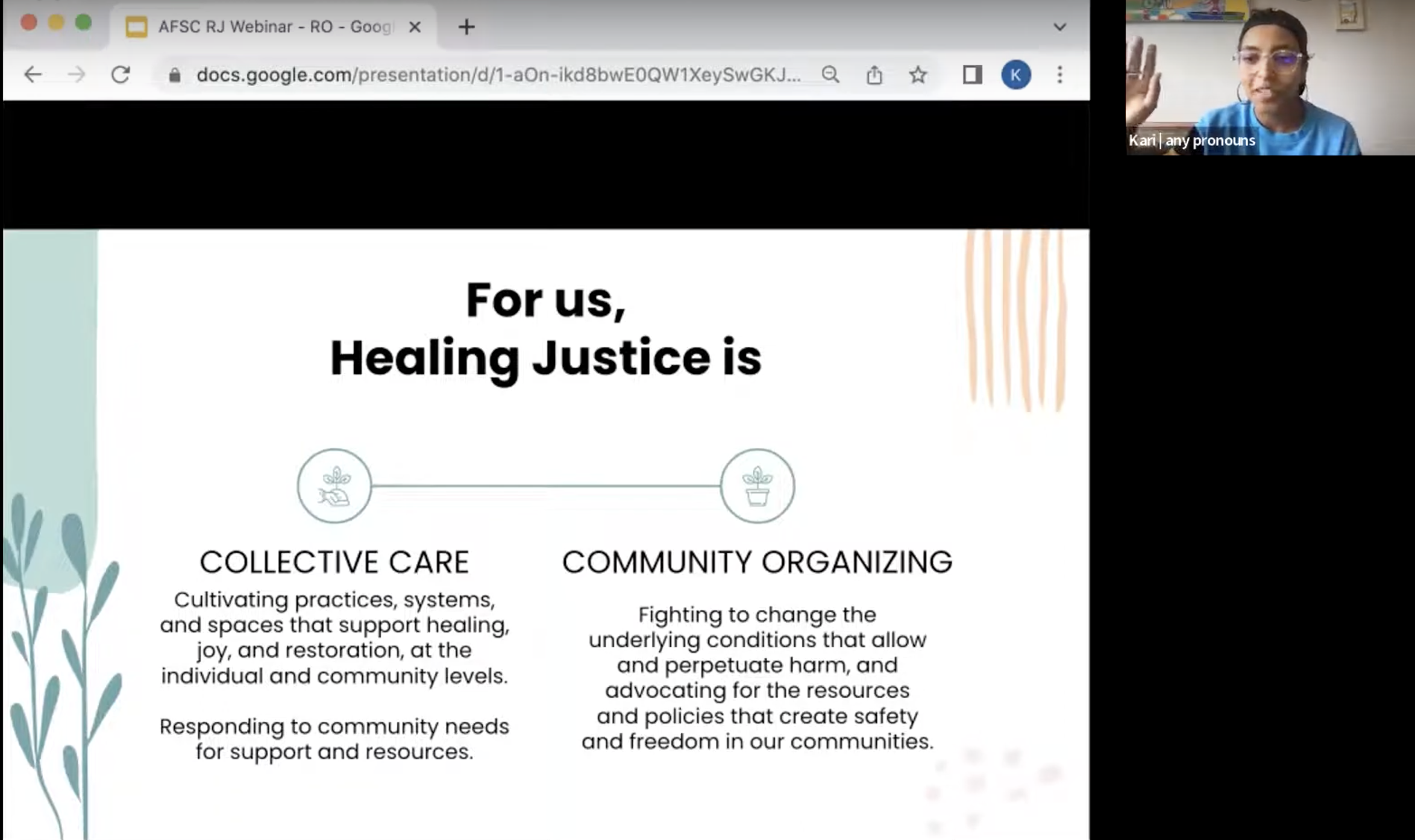
Restorative Justice - Applications
We've learned about Restorative Justice, how does it get applied in our communities?
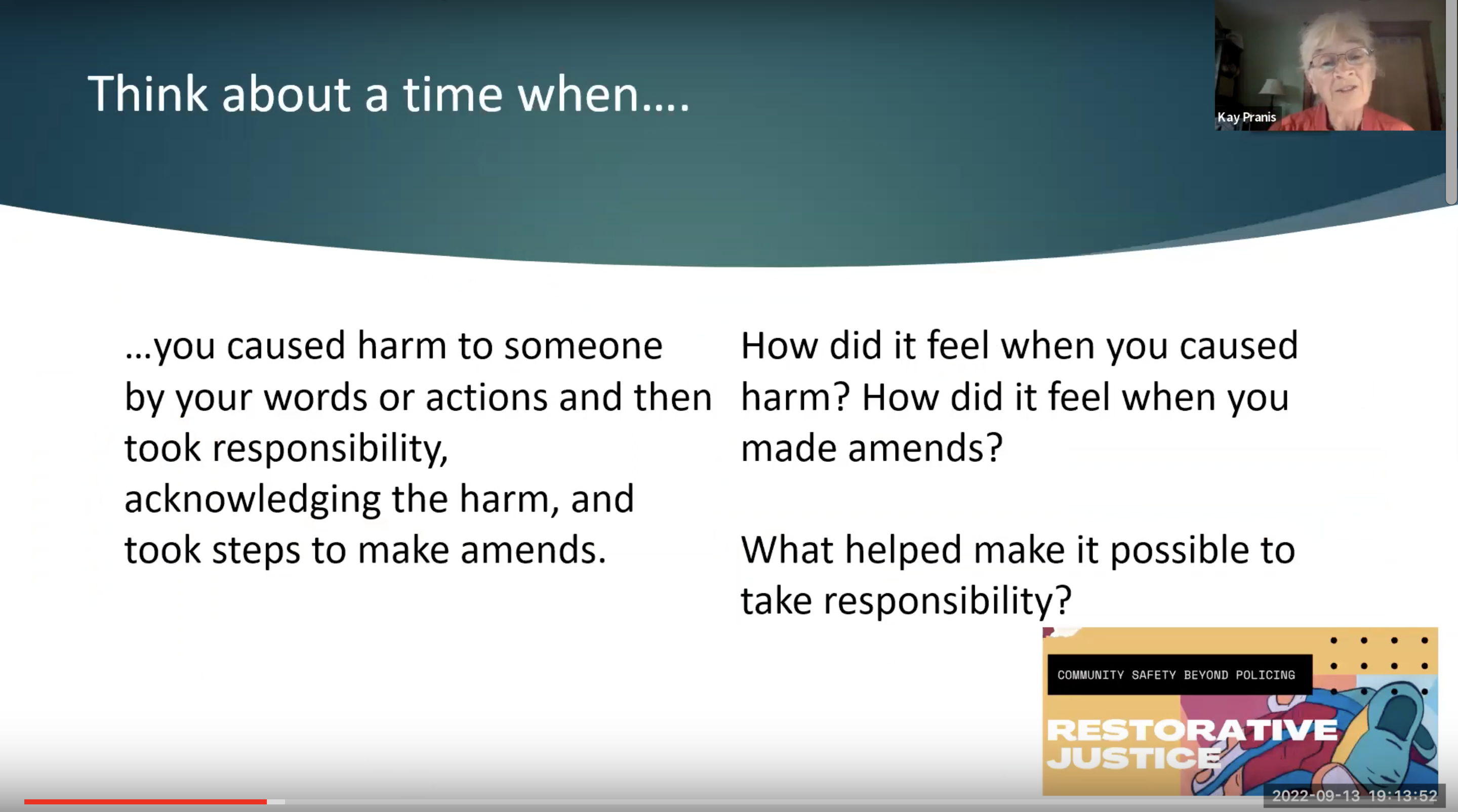
Restorative Justice - Accountability
How are communities strengthened through strengthening ties between the person who caused harm, and the person who received harm? Restorative Justice works because of accountability.
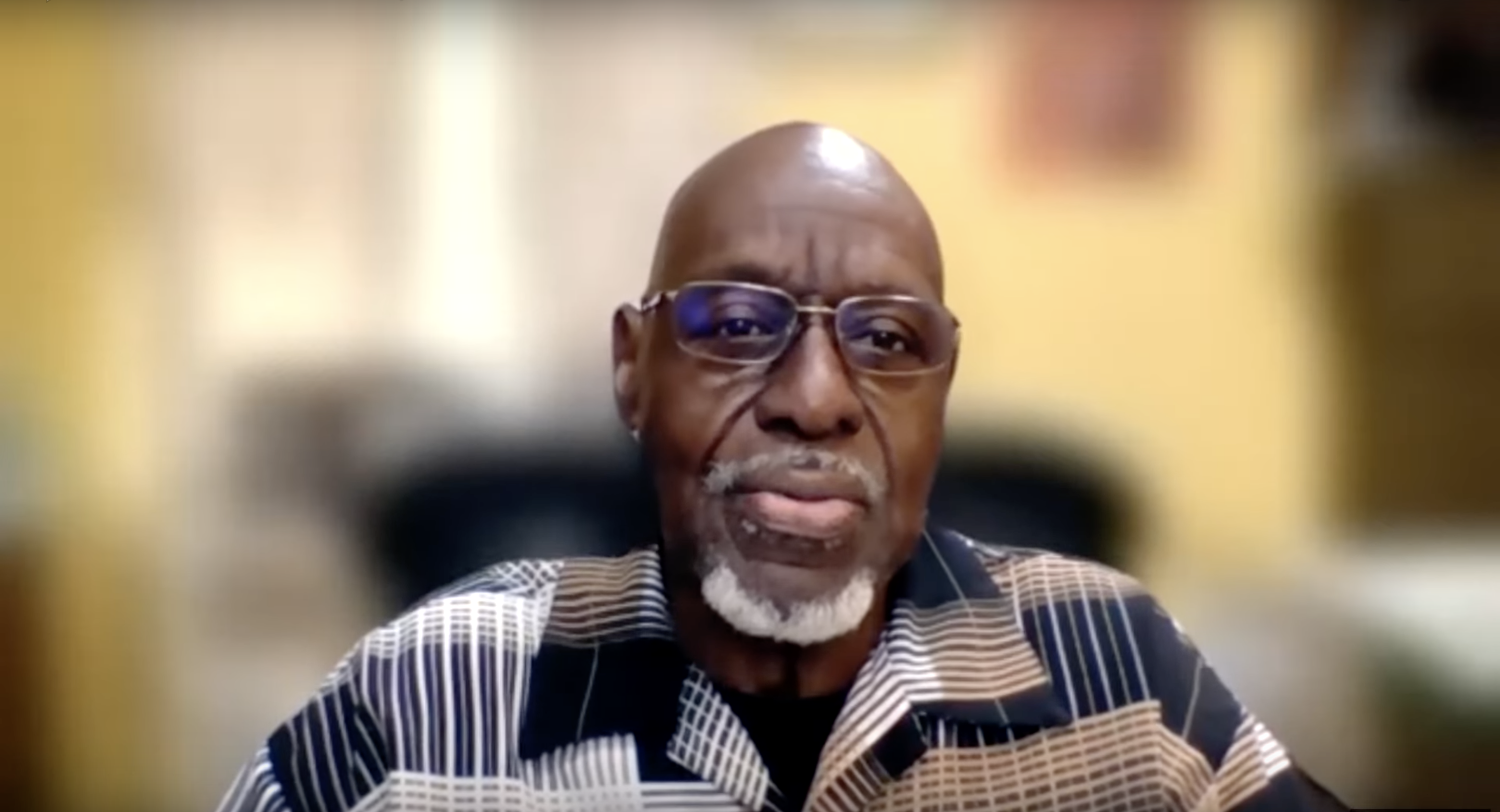
Restorative Justice - Principles
What is Restorative Justice? How does it address harm? How do we exist restoratively in our communities?
This recording is Part 1 of a 3-part Community Safety Beyond Policing webinar series.
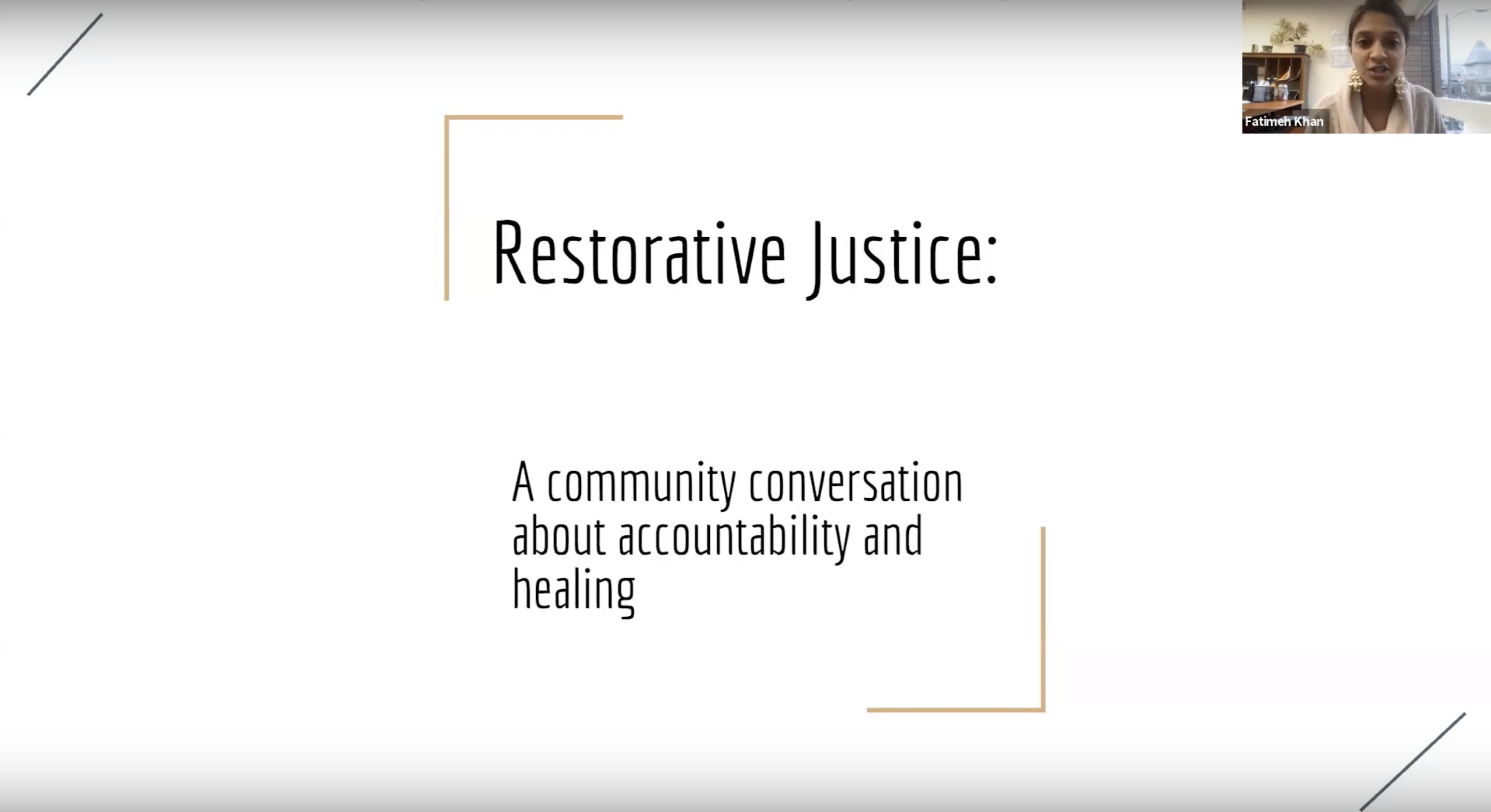
Restorative Justice: A community conversation about accountability and healing
As we work toward a future in which we rely less on police and incarceration, many have lifted up the Indigenous healing model of restorative justice as one path forward. In this webinar, we will discuss what restorative justice looks like, how it has been implemented in various communities to address harms, and what role it can play in creating community safety for all.
Videos
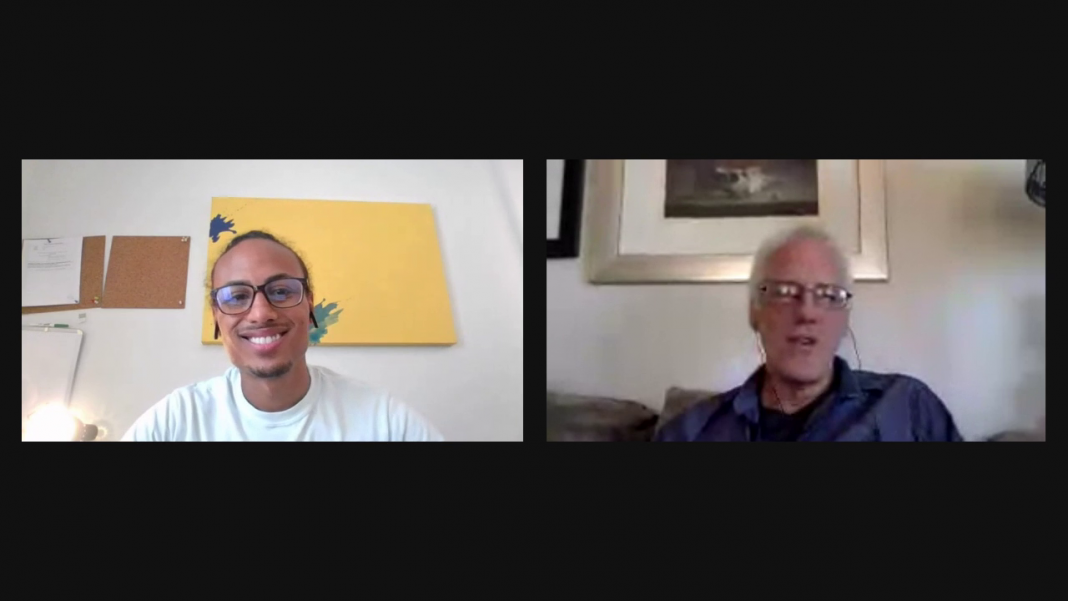
Facebook Live: Demilitarizing Police in Oakland
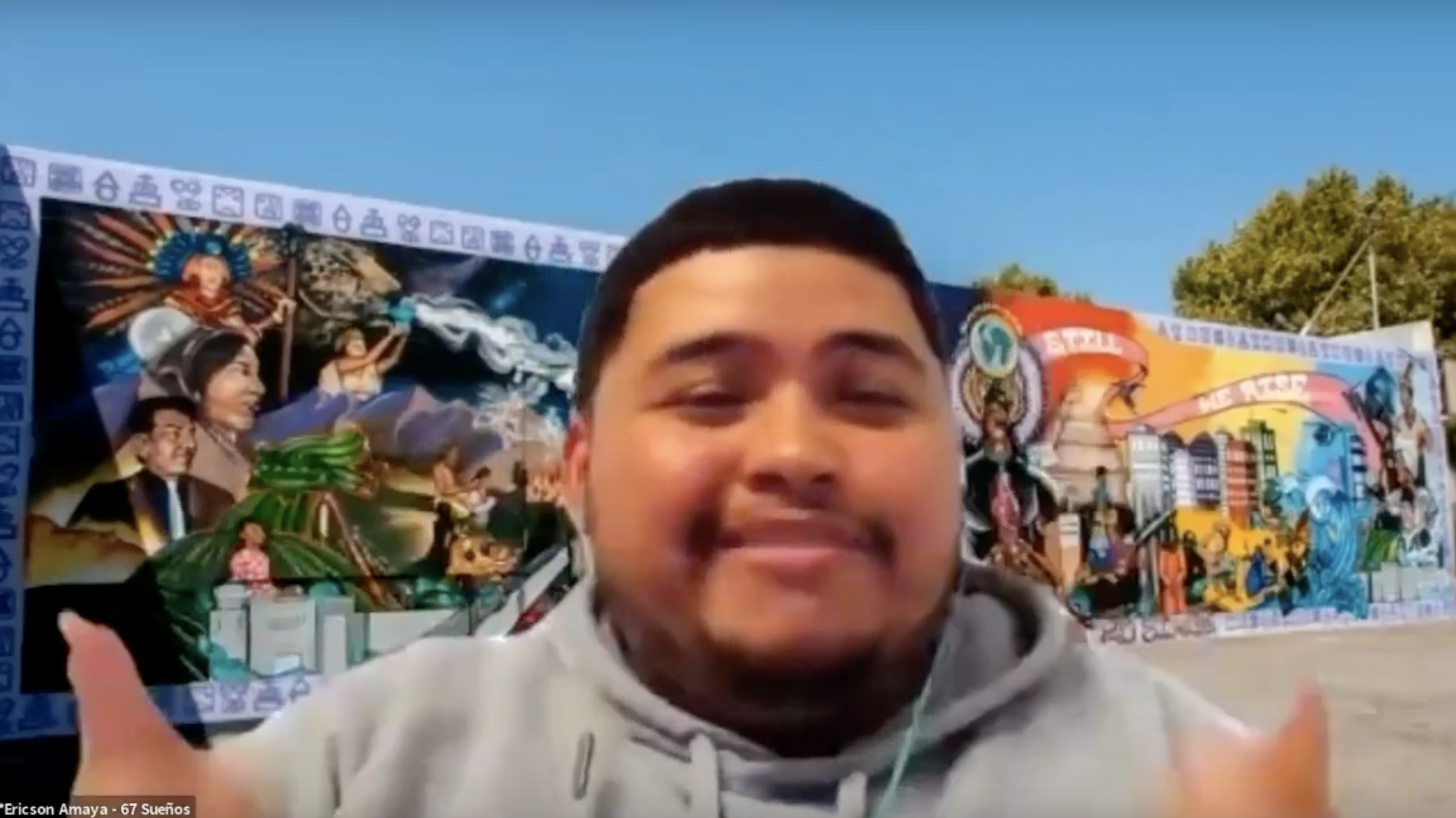
Stopping Police Militarization – June 2021
Communities of color and poor communities are policed as if under occupation using militarized tactics and equipment underwritten by the federal government and local budgets.
This is a recording of a Community Safety Beyond Policing webinar
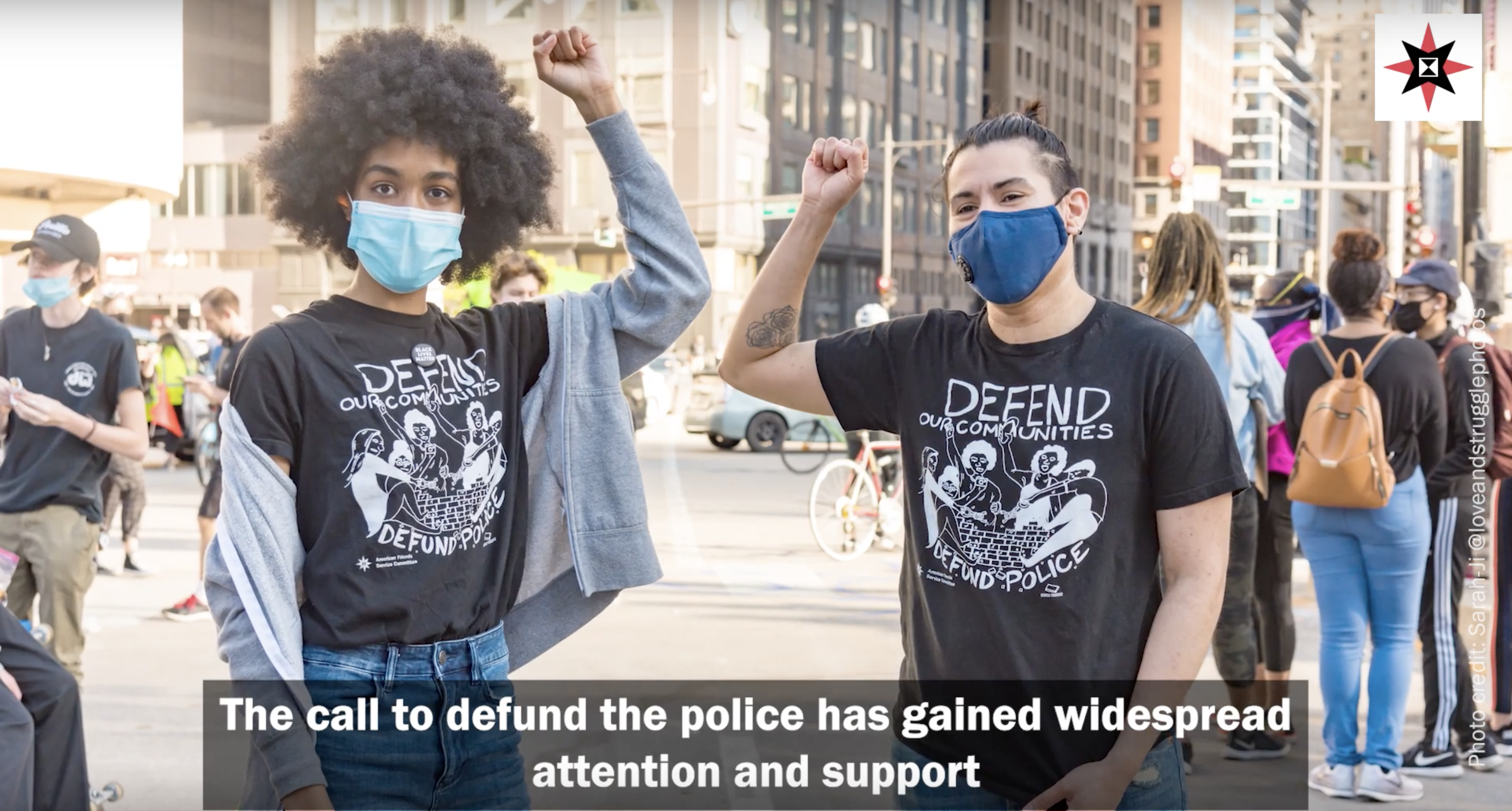
Why defund the police?

